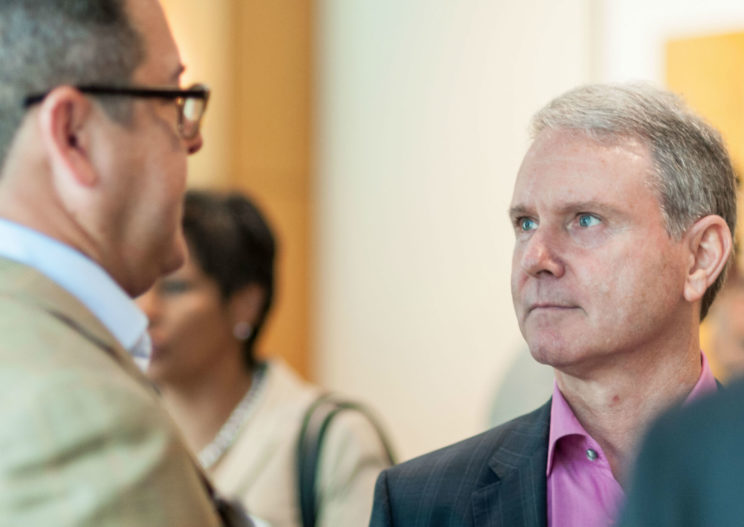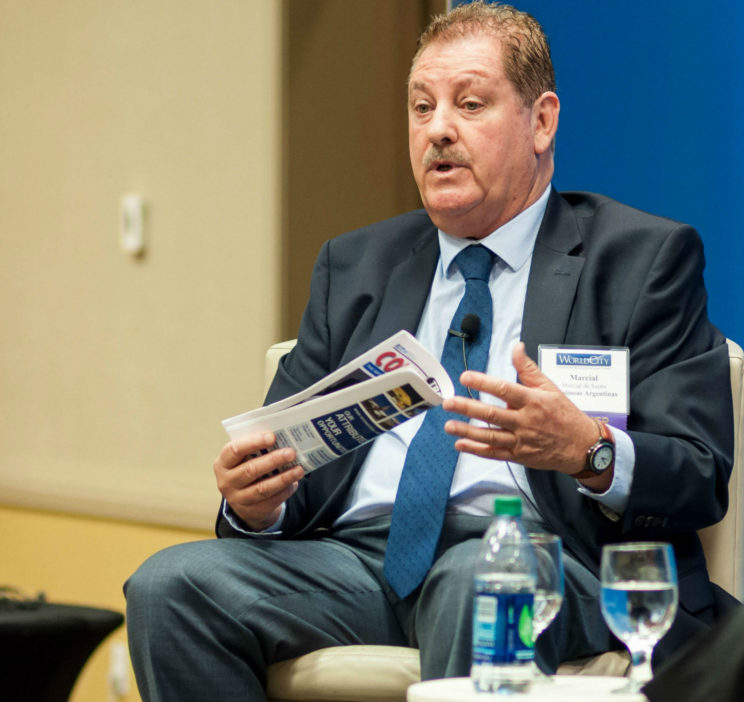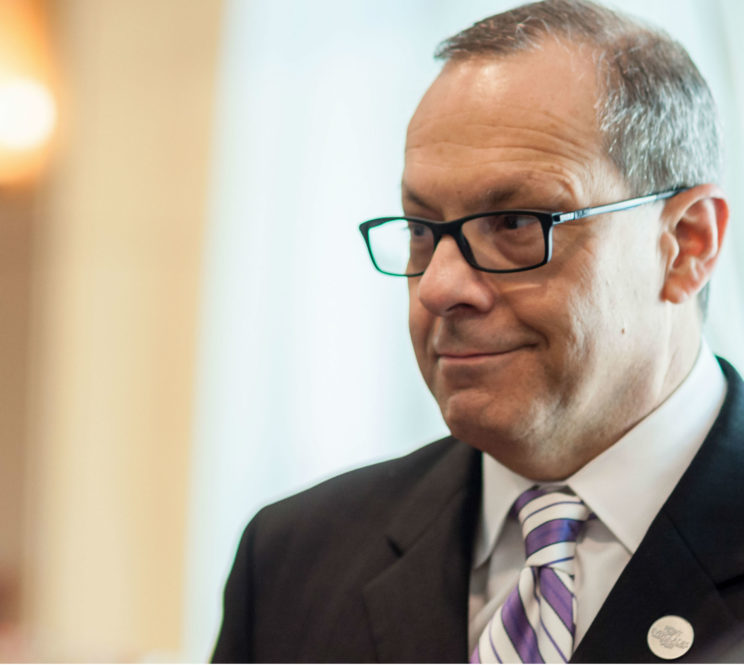Argentina: Rising star for South Florida trade
Argentina’s star is rising for business, and the glow is reaching South Florida.
In 2015, Argentina’s trade with the Miami Customs district hit a record high, topping $3.2 billion for the first time. And through April this year, that commerce is up another 8 percent, WorldCity data shows.
Boosting the glow: Argentina’s new pro-business president known for his management skill, Mauricio Macri. Since taking office in December, he’s settled a long-standing dispute with bondholders and returned his nation to debt markets for the first time in 15 years. The country’s initial $16.5 billion bond issue was hugely oversubscribed.
Pro-business changes underway in Argentina
The outlook for business with rebounding Argentina was the theme of WorldCity’s Trade Connections event held June 17, 2016, and featuring panelist Marcial de Sautu, cargo sales manager for Aerolineas Argentinas responsible for the U.S., Caribbean and South Korea.
Sautu and many other participants forecast bright days ahead for the South American nation of 43 million people, as Macri’s administration aims to attract foreign investors, streamline government and encourage Argentines to bring back money stashed overseas.
“Probably for the first time in 40 or 50 years, we have an approach that makes sense,” Sautu said of the center-right administration that seeks to open Argentina more to the world. “Of course, you can’t expect change overnight.”
WorldCity President Ken Roberts kicked off the morning session with the latest trade statistics. He noted Argentina’s trade with South Florida jumped almost 17 percent last year to top its previous $3.16 billion record in 2013. That growth helped the
Miami area displace Houston as the top gateway for U.S-Argentine trade. Argentina even returned to the list of South Florida’s top 10 partners.
By value, most of that two-way trade was exports from South Florida, led by computers, cellphones and aircraft parts. Imports from Argentina included metals plus fruits, wine and perishables – items with high volume but lower values, he said.
MIA tops for cargo but facing competition
Miami International Airport handled the bulk of that freight, but MIA can’t be complacent, said Sautu, who is based in Miami.
“South Florida has been the darling to the Americas since the 1970s, but the rest of the country is catching up,” said Sautu. Chicago, Dallas, Los Angeles, Atlanta and other U.S. areas also are focusing on business with Argentina and Latin America overall. “We need to be pro-active in how we compete.”
Aerolineas Argentinas operates two flights daily at MIA, plus one daily into New York’s JFK. After Macri floated the currency, prompting a loss in its value, freight volumes softened somewhat this year, especially exports of cellphones and high-tech goods to Argentina. But volumes should “pick up by the end of the year,” Sautu told an audience of more than 60 people.
Doing business with Argentina has its particularities, of course.
Argentina’s Customs bureau went paperless in 2014 and now requires tax numbers, commodity codes and other data be sent before shipment, said Sautu. Some freight forwarders have been slow to adjust to the new requirements and faced cargo delays in Miami.
U.S. Customs has plans to go paperless too, but so far, has moved slowly with a pilot project: “They keep saying tomorrow, but tomorrow is like siesta time,” said Sautu, turning the tables on what’s often a jibe leveled at Latin America. “If we don’t talk about these things, it’s impossible to do business with the airlines in the next 18 months, because it’s coming.”
MIA ranks tops in the United States for international freight because of its strength in cargo-only planes. A British publication calls it “the freighter-friendly airport.” Today, 41 of the 102 airlines serving the airport are cargo carriers, and 83 percent of cargo is handled in freighters, rather than passenger planes, said audience member Chris Mangos, director of MIA’s marketing division.
Industrywide, most freight at airports is transported in the bellies of passenger flights and not separate cargo planes, added Roberts.
Will Macri’s cuts in export taxes spur trade?
Argentina’s rebound also is helping seaports – especially Port Everglades in Broward County, the No. 3 gateway for U.S.-Argentina commerce. Through April, its trade with Argentina rose nearly 16 percent from the same period last year to reach $232.23 million, according to WorldCity’s analysis of U.S. Census data.
Some of that growth has come from a shift in routes, said audience member Robert Barcelo, senior manager for trade development at Port Everglades. Historically, ships from Argentina unloaded first in the U.S. northeast and then, stopped in Florida ports on their way south. But an MSC ships now stops in Everglades on the way north. It unloads perishables and other goods that previously would have been unloaded in the New York area and then sent by truck to the U.S. southeast, he said.
Macri also is cutting taxes on exports, a move that potentially could boost Argentine shipments to South Florida, said Barcelo.
The son of an Italian-born businessman successful in construction and industry, Macri earned a degree in civil engineering and started his career in the family business. He later gained acclaim leading the Boca Juniors soccer club and reviving its fortunes. That recognition helped him win election as mayor of Buenos Aires, where he expanded the bus, train and other public transport programs.
Macri’s administration ends more than 12 years of leftist, populist government under Nestor Kirchner and then Cristina Kirchner, years which featured currency controls, export taxes and other measures that rankled international business.
“Argentina needs to be open to the world,” said Sautu. “There’s no reason to close the doors.”
Trade Connections is one of four event series organized by media company WorldCity to bring together executives in greater Miami on international business topics. The Trade series is sponsored by PortMiami, Miami-Dade County Aviation and American Airlines Cargo.
The next Trade Connections session is set for Aug. 26 on “Perishables: Where South Florida Excels.”





